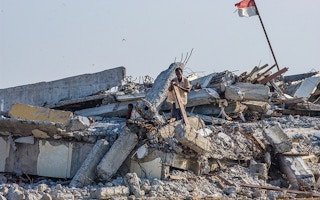Some 400 million people, a tenth of Asia Pacific’s population, live on less than $1.90 a day - the global definition of extreme poverty - despite the region’s impressive economic growth, the United Nations and the Asian Development Bank said on Wednesday.
Taking into account wider indicators of poverty such as health, education and living standards for the same period from 2010 to 2013, the number of poor was far higher at 931 million, or one in four, said a report released at a forum in Bangkok.
In addition, around 11.7 million people were subject to forced labour in the region in 2012, the highest in the world, while nearly a billion worked in poorly paid jobs with no social protection, the report added.
“We are still not at a stage where we can claim that our successful economic and social gains are irreversible,” Shamshad Akhtar, executive secretary of the UN regional office in Asia, told the Asia Pacific Forum on Sustainable Development.
Corruption, lack of human rights protection and rising inequality pose systemic barriers for the region in building an inclusive and prosperous future, the report said.
Climate change, meanwhile, is adding to the uncertainties faced by Asia Pacific, which contains nine out of 15 countries listed as most vulnerable to natural hazards, the report added.
“
We are still not at a stage where we can claim that our successful economic and social gains are irreversible.
Shamshad Akhtar, executive secretary, UN regional office in Asia
In 2015 alone, the region experienced 155 disasters that caused more than 6,700 deaths and nearly $32.6 billion in economic damages, it said.
Asia Pacific has made significant gains in reducing poverty this century. Between 2000 and 2004, the number of people living in extreme poverty was nearly three times higher.
But making progress has become more challenging with slower job creation, a decline in arable land per capita, and loss of natural resources such as forests and fish stocks.
Global Goals
The report also outlines what Asia Pacific needs to do to achieve the U.N.-led Sustainable Development Goals (SDGs).
The 17 global goals, agreed in 2015, aim to resolve the world’s social, economic and environmental problems by 2030.
With more than half of Asia Pacific’s population forecast to live in cities and towns by 2018, the report focuses most of its recommendations on improving the lives of the urban poor.
Urban development should include all social groups, boost the well-being of migrant workers - especially women - and invest in infrastructure that is resilient to weather extremes, the report said.
It also urged governments to spend more on agriculture, as the sector employs 36 percent of the region’s workforce.
Just hours after US President Donald Trump signed an executive order dismantling Obama-era climate change regulations, the UN’s Akhtar implored regional governments not to turn their backs on efforts to tackle global warming.
There is a need to “resist populist demands to revert to protectionism and antagonistic trade and migration barriers, as well as attempts by vested interests to withhold progress on the Paris Agreement”, she said, referring to the UN deal to curb climate change hammered out in 2015.
This story was published with permission from Thomson Reuters Foundation, the charitable arm of Thomson Reuters, that covers humanitarian news, women’s rights, corruption and climate change. Visit news.trust.org.










